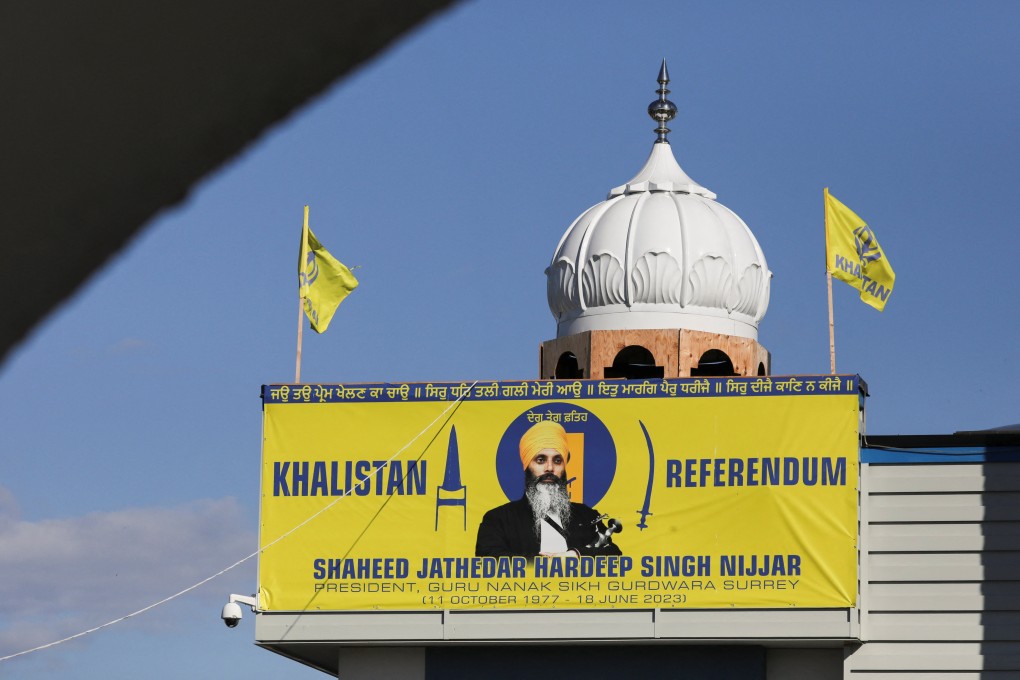India suspends visa services for Canadians, cites ‘security threats’ to staff
- A foreign ministry spokesman blamed the move on the Canadian government’s ‘inaction’ in dealing with security threats to its staff
- India and Canada have engaged in a tit-for-tat expulsion of diplomats after their row erupted over the murder of a Canadian Sikh separatist leader

India has suspended visa services for Canadian citizens because of security threats to its staff in its consulates in Canada, India’s foreign ministry spokesperson said on Thursday.
“The security situation because of Canadian government’s inaction has resulted in disruptions and we have suspended visa applications,” Arindam Bagchi, the South Asian country’s foreign ministry spokesperson, told reporters.
Bagchi added that New Delhi had also “informed the Canadian government there should be parity in diplomatic presence”.
“Their numbers here are very much higher than ours in Canada... I assume there will be a reduction,” he said.
Visa consultancy service provider BLS International, an Indian company, had earlier said a notice from the Indian mission in Canada cited “operational reasons” for suspension of visa services “till further notice”. The notice on the company’s website was briefly removed before it was reinstated.